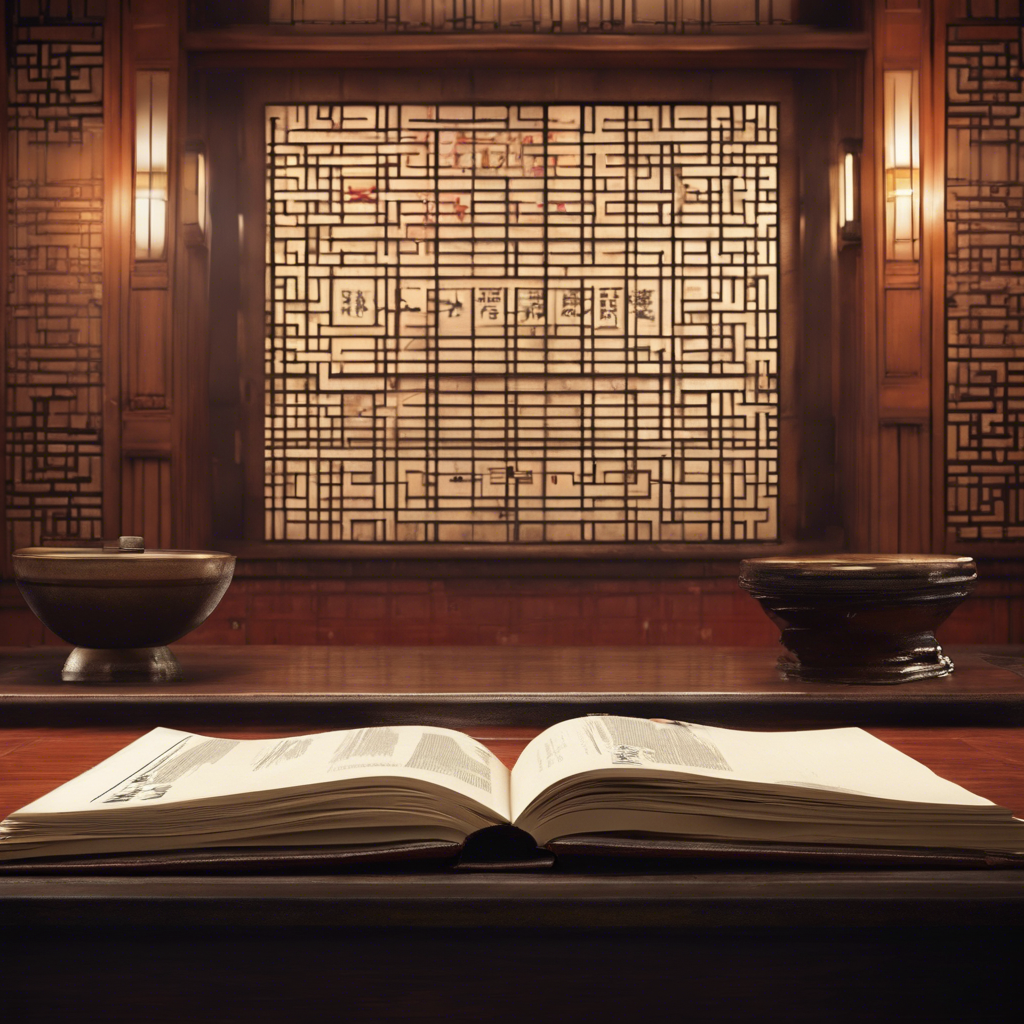The I-Ching: Embracing the Wisdom of Change
- alanbjones
- Jun 10, 2024
- 3 min read

The I Ching, sometimes called the Book of Changes, is a facinating oracle system which still has relevance today.
Everything Changes
In a world constantly in flux, seeking guidance and insight into the mysteries of life is a perpetual quest. The I-Ching , also known as the Book of Changes , stands as a timeless beacon of wisdom, offering profound insights into the ebbs and flows of existence. Let's explore the enigmatic world of the I-Ching, delve into the symbolism of its hexagrams, and uncover the transformative power of embracing change.
Decoding the Language of Hexagrams
At the heart of the I-Ching lies a complex language of 64 hexagrams, each with its own unique symbolism and significance. These hexagrams, composed of solid and broken lines, represent various states of being and situations in life. From Qian (The Creative) to Kun (The Receptive), each hexagram offers a profound reflection on the ever-changing nature of the universe and our place within it.
Embracing the Philosophy of Changes
The essence of the I-Ching lies in its philosophy of change, encapsulated in the fundamental principle of Yin and Yang . Just as day turns into night and winter yields to spring, the I-Ching teaches us to embrace the cyclical nature of existence and find harmony in the midst of change. By understanding the interplay of opposites and embracing the fluidity of life, we can navigate even the most turbulent times with grace and wisdom.

Seeking Guidance in Times of Uncertainty
In a world marked by uncertainty and unpredictability, the I-Ching serves as a trusted companion on life's journey. Whether facing major decisions, seeking clarity in times of confusion, or simply looking for spiritual guidance, consulting the I-Ching can provide valuable insights and perspectives. By casting the coins or yarrow stalks and interpreting the resulting hexagram, individuals can tap into the timeless wisdom of this ancient text.
Honouring Tradition in a Modern World
Despite the advancements of the digital age, the wisdom of the I-Ching remains as relevant and profound as ever. As professionals navigating a fast-paced and ever-changing world, embracing the teachings of the I-Ching can offer a sense of grounding and perspective amidst the chaos. By honoring the ancient tradition of the I-Ching, we can cultivate a deeper understanding of ourselves, our relationships, and the world around us.
Embracing Change as a Path to Transformation
Ultimately, the I-Ching teaches us that change is not something to be feared but embraced as a natural part of life's unfolding journey. By aligning ourselves with the rhythms of change and learning to flow with the currents of existence, we can unlock new possibilities, foster personal growth, and embrace the fullness of our potential. As we embrace the wisdom of the I-Ching, we open ourselves to a world of infinite possibilities and profound transformation.
The I-Ching stands as a timeless testament to the power of change, offering guidance, insight, and wisdom to all who seek its teachings. By embracing the philosophy of the I-Ching and honoring its traditions, we can navigate life's twists and turns with grace, resilience, and profound wisdom.
This too shall pass.
I Ching Basics
The foundation of the I Ching is a system of lines where each line within an hexagram (set of six lines) can be either solid (yang) or broken (yin).
This reflects the dualistic nature of existence, with yang symbolizing light, activity, and assertion, and yin representing darkness, receptivity, and yielding.
The I Ching system is based upon eight trigrams (set of three lines) which represent fundamental aspects of existence, such as heaven, earth, fire, water, mountain, and wind.

To construct a hexagram, two trigrams are combined—one above the other—to form a six-line figure. The resulting hexagram embodies the qualities and interactions of the two trigrams.
These eight trigrams can be combined to create 64 hexagrams.

The interplay of active (yang) an receptive (yin) lines form the basis of traditional I Ching interpretations.
In the Moot on the 14th June we will talks about Taoism which will allow us to explore some of the connections between these two different eastern systems.
To receive an invitation to the Moot (free) and other related posts sign up to The School of Mystery and Magick.
The Moot will be recorded and will be available to subcribers from 16th here.
Alan /|\



Comments